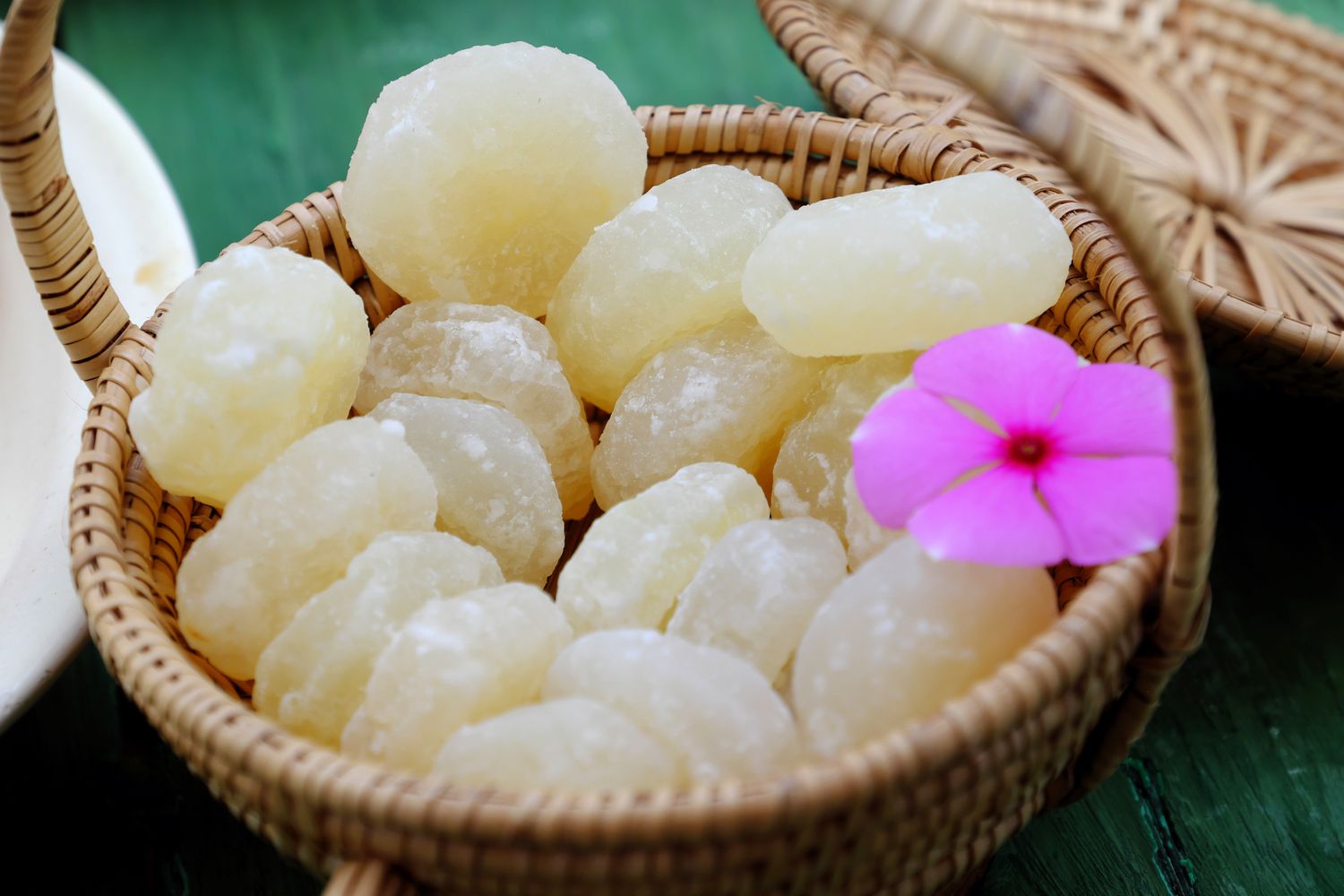
Ever wondered what makes water chestnuts a go-to for crunchy salads and stir-fries? Water chestnuts are not just about that satisfying crunch; they're packed with nutrition too. In this post, we'll uncover 18 fantastic nutrition facts about these little gems that might just surprise you. From their low-calorie count to their impressive array of vitamins and minerals, water chestnuts offer more than meets the eye. So, why do health enthusiasts and chefs alike swear by them? Well, let's dive into the world of water chestnuts and find out what makes them a powerhouse of nutrients. Ready to get your mind blown by how awesome water chestnuts are for your health? Let's get cracking!
Key Takeaways:
- Water chestnuts are low in calories, high in fiber, and packed with potassium, making them a great choice for weight management and heart health. They're also gluten-free and can be included in various dishes for a delightful crunch.
- Despite their name, water chestnuts are not nuts but aquatic vegetables. They can be eaten raw, added to stir-fries and salads, and even used to make gluten-free flour. They are a staple in Asian cuisine and offer unique health benefits.
What Are Water Chestnuts?
Water chestnuts are not nuts but aquatic vegetables that grow in marshes, ponds, paddy fields, and shallow lakes. Despite their name, these crunchy, sweet vegetables are more closely related to tubers like potatoes than to actual chestnuts. They're a popular ingredient in Asian cuisine, known for adding a delightful crunch to dishes.
Nutritional Profile of Water Chestnuts
-
Low in Calories – One of the standout features of water chestnuts is their low calorie content. A half-cup serving contains just about 60 calories, making them a great choice for calorie-conscious individuals.
-
Rich in Fiber – With about 3 grams of fiber per half-cup, water chestnuts can help you meet your daily fiber needs, promoting healthy digestion and reducing the risk of heart disease.
-
Packed with Potassium – These aquatic vegetables are a good source of potassium, an essential mineral for maintaining normal blood pressure and heart function.
-
Contains Antioxidants – Water chestnuts contain antioxidants like ferulic acid, which can help protect your cells from damage by free radicals.
Health Benefits of Water Chestnuts
-
Supports Weight Loss – Due to their high water and fiber content, water chestnuts can make you feel full, which helps in controlling appetite and supporting weight loss efforts.
-
Promotes Heart Health – The potassium and fiber in water chestnuts contribute to heart health by lowering blood pressure and reducing cholesterol levels.
-
Gluten-Free Source of Nutrition – For those with gluten intolerance or celiac disease, water chestnuts offer a nutritious, gluten-free option to include in their diet.
How to Include Water Chestnuts in Your Diet
-
Fresh or Canned – Water chestnuts can be eaten fresh or bought canned. Fresh ones have a sweeter taste and crunchier texture, but canned versions are more readily available and still offer nutritional benefits.
-
Add to Stir-Fries – Their crunchy texture makes water chestnuts a perfect addition to stir-fries, adding a delightful contrast to softer vegetables and meats.
-
Use in Salads – Sliced water chestnuts can add a refreshing crunch to salads, making them more satisfying and nutritious.
-
Make Water Chestnut Flour – Ground water chestnuts can be used to make a gluten-free flour for baking and thickening sauces.
Interesting Facts About Water Chestnuts
-
Not Related to Chestnuts – Despite their name, water chestnuts are not related to chestnuts. They're actually a type of aquatic vegetable.
-
Grown in Water – True to their name, water chestnuts require a lot of water to grow. They thrive in flooded conditions, similar to rice paddies.
-
A Staple in Asian Cuisine – Water chestnuts are a staple in Asian cuisine, featured in many dishes for their unique crunchy texture and sweet flavor.
-
Can Be Eaten Raw – Unlike many tubers, water chestnuts can be eaten raw, offering a refreshing crunch and sweet taste.
-
Used in Traditional Medicine – In traditional Chinese medicine, water chestnuts are used for their supposed cooling and detoxifying properties.
-
Versatile in Cooking – Beyond stir-fries and salads, water chestnuts can be used in soups, cakes, and even as a natural sweetener in desserts.
-
Nutrient-Rich Water – The water in which water chestnuts are grown is often rich in nutrients, making it beneficial for irrigating other crops.
A Final Scoop on Water Chestnuts
Water chestnuts pack a punch in the nutrition department, offering a unique blend of benefits that can enhance any diet. They're low in calories yet rich in fiber, making them a fantastic choice for weight management and digestive health. Plus, their antioxidant properties help fight off free radicals, reducing the risk of chronic diseases. Whether you're looking to add a crunchy texture to your meals or seeking a new source of essential nutrients, water chestnuts are a versatile and healthy addition. Remember, incorporating these aquatic gems into your diet isn't just about enjoying their crisp texture; it's also about taking a step towards a healthier lifestyle. So, next time you're at the grocery store, don't hesitate to grab a pack of water chestnuts and experiment with this nutritious ingredient in your cooking.
Frequently Asked Questions
Was this page helpful?
Our commitment to delivering trustworthy and engaging content is at the heart of what we do. Each fact on our site is contributed by real users like you, bringing a wealth of diverse insights and information. To ensure the highest standards of accuracy and reliability, our dedicated editors meticulously review each submission. This process guarantees that the facts we share are not only fascinating but also credible. Trust in our commitment to quality and authenticity as you explore and learn with us.
